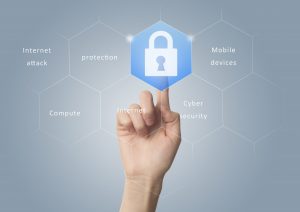 The University of Scranton is proud to announce the planned implementation of Ellucian DegreeWorks, an easy-to-use, online suite of academic planning tools that assist students and advisors in planning, tracking and auditing academic progress and completion of degree requirements. DegreeWorks is a web-based audit tool that will provide a clear and convenient method for: viewing and tracking requirements for the degree program declared by a student; supporting more timely degree certification by reducing paperwork and manual degree certification checklists; and aiding departments in forecasting course capacity demand. The program compares degree requirements against coursework completed to produce an easy-to-read, online worksheet that displays degree requirements by categories (GE, Major, Minor, Concentration). The University’s decision to adopt DegreeWorks, the most modern educational program planning tool in the higher education marketplace, was highlighted as a strength by the Middle States Peer Review Team in their oral debriefing.
The University of Scranton is proud to announce the planned implementation of Ellucian DegreeWorks, an easy-to-use, online suite of academic planning tools that assist students and advisors in planning, tracking and auditing academic progress and completion of degree requirements. DegreeWorks is a web-based audit tool that will provide a clear and convenient method for: viewing and tracking requirements for the degree program declared by a student; supporting more timely degree certification by reducing paperwork and manual degree certification checklists; and aiding departments in forecasting course capacity demand. The program compares degree requirements against coursework completed to produce an easy-to-read, online worksheet that displays degree requirements by categories (GE, Major, Minor, Concentration). The University’s decision to adopt DegreeWorks, the most modern educational program planning tool in the higher education marketplace, was highlighted as a strength by the Middle States Peer Review Team in their oral debriefing.
DegreeWorks also features a Transfer Equivalency (TE) module designed to articulate and map external coursework to University of Scranton equivalencies. Its self-service tool will allow high school and transfer students to forecast their transferable credits, a utility that will greatly improve the timeliness and processing of transfer credit for these applicant populations.
Susan Bowen, CIO, and Julie Ferguson, Registrar, are the executive sponsors of the DegreeWorks project. “DegreeWorks is a university-wide initiative that will further enhance the student user experience at UofS,” states Ms. Bowen. Ms. Ferguson added “An implementation committee, co-chaired by Rose Ann Jubinski, IT Business Applications Analyst, and Lisa Cornell, Associate Registrar, will include cross-campus representation from TAG, Faculty Advisors, Advising Centers, ORAS, Financial Aid, IT, Dean’s Offices and the Office of the Provost. Advisors, Department Chairs and Program Directors will be routinely consulted throughout the coding and testing processes.” Extensive training will be provided to all users.
DegreeWorks is expected to launch in Fall 2020; the product will be available to undergraduate and graduate students admitted in Fall 2020 and thereafter. CAPP will be used to track the degree requirements of students admitted prior to Fall 2020.
Written by Julie Ferguson, Registrar

 Cybersecurity, data breach, privacy, phishing attempts– I am sure you are most familiar with these words, as they have been frequently used these past years in our campus presentations, national news reports and articles in industry magazines (just to name a few). The threats these words represent are escalating, complicated and quite frankly too important to dismiss.
Cybersecurity, data breach, privacy, phishing attempts– I am sure you are most familiar with these words, as they have been frequently used these past years in our campus presentations, national news reports and articles in industry magazines (just to name a few). The threats these words represent are escalating, complicated and quite frankly too important to dismiss.